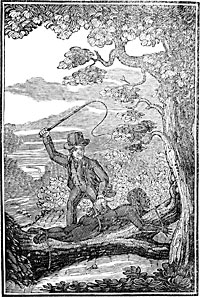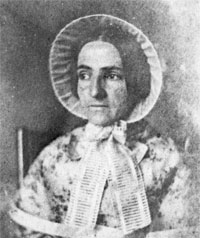| |
|
|
| |
JORDAN ALEXANDER STEIN |
|
| |

Scholars in many different disciplines generally accept that the conceptual
abstraction called "the public sphere"—a space of critical self-reflection
functioning at least partially independent of state authority—developed
coextensively with the rise of print. "Developed coextensively" is, however,
somewhat elliptical as a historical explanation; for print—the impression
of text and design characters onto paper—is usually taken to be a technology
and not an agent. Print cannot be said in any single-handed sense to
cause anything, let alone the public sphere.  Read |
|
| |
|
|
|
| |
|
|
| |
MONICA KIM |
|
| |
The US military interrogation room has often been the site of controversy,
but it has seldom been the object of scrutiny. Faced with photos from Abu
Ghraib and reports from Gitmo, the public has primarily honed its outrage
on the practice of torture within these interrogation rooms. While
the debate about torture escalated over the White House paper trail that
provided a legal framework for coercive techniques, the interrogation room
itself remained relatively untouched. It was the excessive behavior within
the interrogation room that received all the attention. I want to argue that
the interrogation room has, in fact, played a pivotal—if little noticed—role
in the mainstream discourse of war, law, and violence. Both critics and
defenders of torture practices have relied upon a surprisingly similar assumption:
that the interrogation room itself can be a rational space for the
Read |
|
| |
|
|
| |
|
|
| |
LEE EDELMAN |
|
| |
On August 11, 2011, Mitt Romney, while pursuing the Republican nomination
for the presidency of the United States, appeared before a crowd at the Iowa
State Fair to argue for cutting government spending instead of raising taxes
on people. When a heckler called out the alternative of raising taxes on corporations,
Romney responded with the now famous phrase, "corporations
are people, my friend." In a climate of intense political debate over income
inequality, corporate bailouts, unregulated Wall Street speculation, illegal
mortgage foreclosure practices, and seven-figure executive bonuses, this
response seemed to crystallize . . .
Read |
|
| |
|
|
|
| |
|
|
| |
INDRANI CHATTERJEE |
|
| |
Between the second and the eighteenth century CE, a form of political society
located in the household was that of an eminent or skilled teacher
and his coresidential disciple or student. I call this order "monastic governmentality"
on the strength of the epigraphic, numismatic, and narrative
evidence of societies in eastern India. In the essay that follows, I argue that
monastic governments existed all over eastern and Himalayan India until
the late eighteenth century, when colonial law eroded privileges associated
with them. This process impoverished women in the households and
inverted the terms in which these women had earlier been remembered by
grateful clients. Colonial politics, driven by a liberal political economy and
an evangelical Christian morality in the early nineteenth century, disabled
and disavowed precolonial women's histories. Postcolonial scholarship,
formed at the juncture of liberal and evangelical notions of law, agency, and
history, has persisted in this disavowal. It has mislaid the responsibility for
misogyny. Instead of looking closely at eighteenth-century European laws
and commerce, it blamed Hindu or Muslim "traditions" for what is, in fact,
a hypermodern colonial misogyny. These misattributions were manifest in
1987, when a woman's death in Deorala sparked off a flurry of scholarship
on women's immolations (sati). Very few scholars who participated in this
exchange had either researched the precolonial political order or reinvestigated
the minutiae of late eighteenth-century colonial economics.
Read |
|
| |
|
|
|

